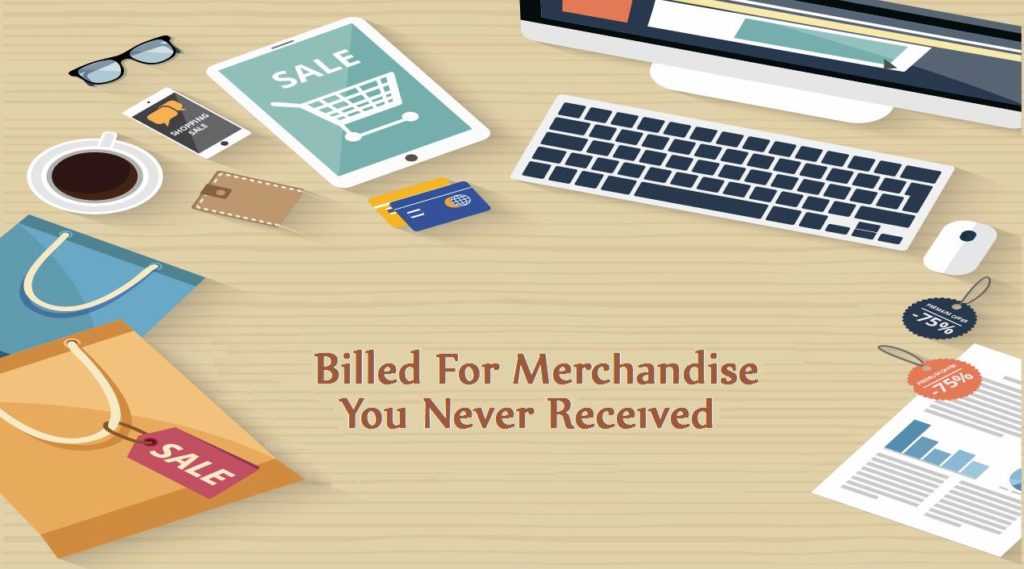 You found the perfect set of bed linens and matching curtains online. You place your order and charge it to your credit card. The site says your order should arrive in two weeks. Two weeks go by, then three and four, and still no bedding or curtains. But your credit card bill has a charge from the seller.
You found the perfect set of bed linens and matching curtains online. You place your order and charge it to your credit card. The site says your order should arrive in two weeks. Two weeks go by, then three and four, and still no bedding or curtains. But your credit card bill has a charge from the seller.
So what do you do when you get a credit card bill but no merchandise? Get frustrated, to be sure. But the error can be corrected. Two federal laws — the Mail, Internet or Telephone Order Merchandise Rule and the Fair Credit Billing Act — offer protections and procedures so you don’t have to pay for merchandise you ordered but never got. But first things first: Contact the seller to try to resolve the problem and get a refund. Most businesses want to keep you happy so you’ll keep coming back.
Disputing a Credit Card Billing Error
Many credit card issuers have policies against sellers charging a credit card account before shipment. If you think a seller charged your account too soon, report it to the credit card issuer. Otherwise, the issuer has no way to know the seller isn’t following its policies.
To dispute the billing error with your credit card issuer, you must:
- write to the credit card issuer at the address given for “billing inquiries,” not the address for sending your payments, and include your name, address, account number, and a description of the billing error. Use our sample letter.
- send your letter so that it reaches the credit card issuer within 60 days after the first bill with the error was mailed to you. It’s a good idea to send your letter by certified mail; ask for a return receipt so you have proof of what the credit card issuer received. Include copies (not originals) of sales slips or other documents that support your position. Keep a copy of your dispute letter.
The credit card issuer must acknowledge your complaint, in writing, within 30 days after receiving it, unless the problem has been resolved. The issuer must resolve the dispute within two billing cycles (but not more than 90 days) after getting your letter.
You may withhold payment on the disputed amount (and related charges) during the investigation. You must pay any part of the bill not in question, including finance charges on the undisputed amount.
The credit card issuer may not take any legal or other action to collect the disputed amount and related charges (including finance charges) during the investigation. While your account can’t be closed or restricted, the disputed amount can be applied against your credit limit.
But what if… You placed an order with a catalog company and they charged your credit card immediately. The catalog company contacts you two weeks later and says the shipment will be delayed 60 days. You agree to the delay. The 60 days have passed, and you may be outside of the time to dispute the charges. Can you still dispute the charge?
Maybe. When a shipment is delayed, credit card issuers often are more generous when they calculate the time for allowing disputes, and may extend the 60-day period. To take advantage of this flexibility, include the following information in your dispute letter.
- Tell the credit card issuer if you didn’t expect to be charged for the merchandise before it was shipped. Some credit card issuers make an exception to the general industry rule against sellers charging before shipping if the seller tells you about its practice at the time of sale. If you’re sure the seller said nothing or wasn’t clear about its charge practice, the credit card issuer is more likely to allow the dispute.
- Tell the credit card issuer when delivery was expected. Some issuers use the expected date of delivery rather than the charge date as the start time for you to dispute charges. If you dispute the charge within a reasonable time after the expected delivery date passes, chances are good that the card issuer will honor the dispute. When you order or when a seller notifies you of delayed shipment, it’s important to keep a record of the promised shipment or delivery date. Include a copy of any documentation of the shipment or delivery date when disputing the charge with your card issuer.
